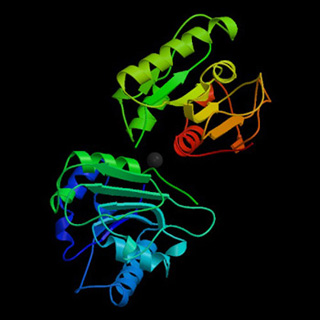
Five water molecules forming a H-bonded complex just above a carbon nanotube tip. The HOMO is confined to the nanotube only. The presence of polar water molecules enhances field-emission current from nanotube tip. Calculations performed with MS Modeling's DMol3. (Image courtesy of Accelrys, www.accelrys.com.)
Instructor(s)
Prof. Paula Hammond
MIT Course Number
10.520 / 10.420
As Taught In
Fall 2004
Level
Undergraduate / Graduate
Course Description
Course Features
Course Description
This class covers molecular-level engineering and analysis of chemical processes. The use of chemical bonding, reactivity, and other key concepts in the design and tailoring of organic systems are discussed in this class. Specific class topics include application and development of structure-property relationships, and descriptions of the chemical forces and structural factors that govern supramolecular and interfacial phenomena for molecular and polymeric systems.


